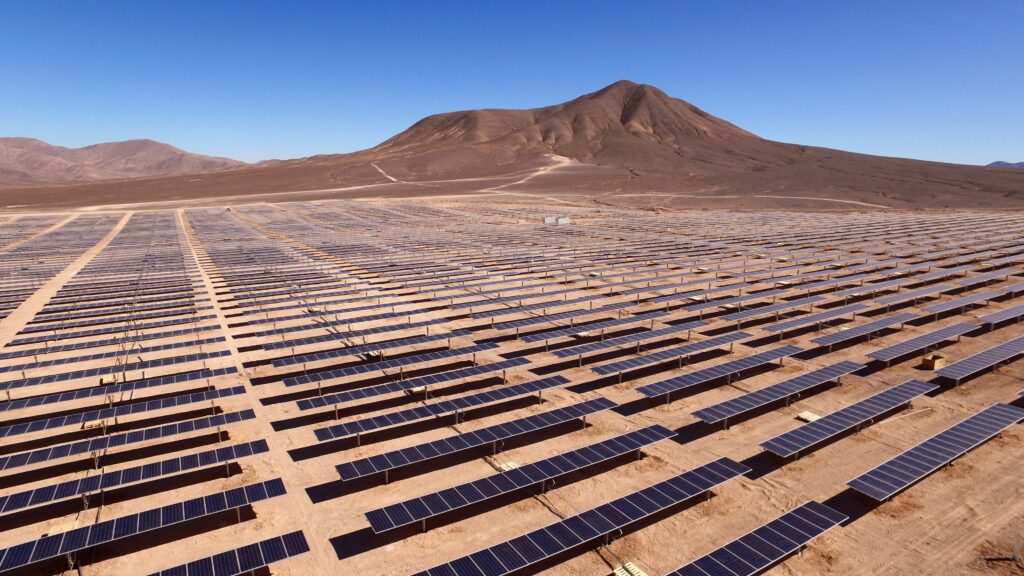Have you ever wondered if it’s possible to run a solar generator indoors? Well, you’re in the right place! In this article, we’ll explore the fascinating world of solar generators and answer the burning question on your mind. So, grab a cup of tea and prepare to be enlightened about the feasibility of using solar generators indoors.

Understanding the Nature of Solar Generators
How solar generators work
Solar generators utilize the energy from the sun to generate electricity. They are composed of three main components: solar panels, charge controller, and battery. The solar panels, made up of photovoltaic cells, convert sunlight into direct current (DC) electricity. The charge controller regulates the flow of electricity from the solar panels to the battery, ensuring it is charged optimally. The battery stores the electricity generated and can be used to power various electronic devices.
The components of a solar generator
As mentioned earlier, a solar generator consists of solar panels, a charge controller, and a battery. Solar panels are responsible for capturing sunlight and transforming it into usable energy. The charge controller acts as a bridge between the solar panels and the battery, preventing overcharging and optimizing battery performance. The battery stores the electricity generated by the solar panels and provides power when needed.
Different types of solar generators
There are various types of solar generators available in the market. Portable solar generators are lightweight and compact, making them convenient for outdoor activities such as camping or emergency situations. They typically have smaller capacities and are designed for powering small devices. On the other hand, home solar generators are larger and designed for more substantial power needs. These systems may be connected to the grid, allowing excess energy to be sold back to the power company, or they can operate independently in off-grid applications.
Safety Concerns of Running a Solar Generator Indoors
The heat generated by solar generators
Solar generators generate heat during the conversion of sunlight into electricity. While the heat produced is generally minimal, it can accumulate if the solar generator is operated for an extended period. This accumulation may result in overheating, which can be a safety concern, especially if the generator is used indoors. It is important to consider the heat dissipation capabilities of the solar generator and ensure proper ventilation to prevent overheating.
Risk of fire or electrocution from solar generators
Improper use of solar generators, such as overloading the system or connecting incompatible devices, can pose a fire risk. Additionally, working with electricity always carries the risk of electrocution. It is crucial to follow the manufacturer’s guidelines and safety instructions when using a solar generator indoors to mitigate these risks. Regular inspection and maintenance can help identify any potential issues that may lead to fire or electrical hazards.
Other safety hazards to consider
Apart from heat generation and fire risks, there are other safety hazards associated with running a solar generator indoors. These include the risk of carbon monoxide poisoning if using a generator with a fuel-burning backup system, the potential for battery leaks or explosions, and the risk of electric shock if the generator is not properly grounded. Understanding these risks and taking appropriate safety measures is essential for safe indoor use of solar generators.
The Practicality of Using a Solar Generator Indoors
How sunlight affects the efficiency of a solar generator
The efficiency of a solar generator is directly influenced by the amount of sunlight available. Indoor locations often lack direct sunlight, which can limit the generation of electricity. However, some solar generators are designed to work efficiently with indirect sunlight or artificial lighting, making them suitable for indoor use. It is crucial to choose a solar generator that is optimized for indoor or low-light conditions to ensure optimal performance.
Ideal location for a solar generator
Placing a solar generator in an ideal location indoors is key to maximizing its effectiveness. Areas near windows or skylights that receive ample natural light are ideal choices. It is important to position the solar panels where they can capture the most sunlight throughout the day. Additionally, ensuring that there are no obstructions, such as curtains or shades, blocking the sunlight is essential for optimal performance.
Considerations for indoor use of a solar generator
When using a solar generator indoors, it is important to consider a few factors. Firstly, the capacity of the solar generator should align with the power requirements of the devices you intend to power. Overloading the solar generator can negatively impact its performance and potentially pose safety risks. Secondly, monitoring the battery level and recharging it regularly is crucial. Lastly, ensuring proper ventilation and following safety guidelines will help maintain a safe environment when using a solar generator indoors.
The Issue of Carbon Emissions from Solar Generators
The environmental impact of solar generators
Solar generators are considered a cleaner and more environmentally friendly alternative to traditional fuel-operated generators. They harness the sun’s energy, which is a renewable resource, and do not emit harmful pollutants or greenhouse gases during operation. Using solar generators reduces reliance on fossil fuels and helps combat climate change.
How carbon emissions are produced
Solar generators themselves do not produce carbon emissions during their operation. However, it is important to consider the carbon emissions associated with the manufacturing and disposal of the components. The production of solar panels and batteries may involve energy-intensive processes, contributing to carbon emissions. However, these emissions are generally recouped over the lifetime of the solar generator through the clean energy it generates.
The danger of carbon emissions in enclosed spaces
While solar generators do not emit carbon emissions during operation, some models may have fuel-burning backup systems that release carbon monoxide. Carbon monoxide is a deadly gas that can quickly accumulate in enclosed spaces, posing a serious health risk. It is crucial to choose a solar generator specifically designed for indoor use and without any fuel-burning components to mitigate the danger of carbon emissions.

Ventilation Requirements for Solar Generators
Why ventilation is important for running a solar generator
Proper ventilation is crucial when running a solar generator indoors. Ventilation helps dissipate heat generated by the solar generator, preventing overheating and potential damage to the system. It also helps maintain air quality by minimizing the buildup of potentially harmful gases, such as hydrogen produced by lead-acid batteries. Adequate ventilation ensures the safe and efficient operation of the solar generator.
How proper ventilation avoids overheating and damage
When a solar generator operates for an extended period, heat buildup can occur. Insufficient ventilation traps the heat and can lead to overheating, reducing the efficiency and lifespan of the solar generator. Overheating can also pose a safety hazard, potentially causing damage to the system or even a fire. Proper ventilation allows the heat to disperse, keeping the solar generator within its optimal operating temperature range.
Ventilation options for indoor use
To ensure proper ventilation when using a solar generator indoors, there are several options to consider. Installing exhaust fans or vents in the area can facilitate airflow and help dissipate heat. Positioning the solar generator in an area with natural airflow, such as near a window or an open door, can also promote ventilation. Additionally, keeping the immediate surroundings of the solar generator clear from obstructions, such as furniture or curtains, will allow for better air circulation.
Alternatives to Running a Solar Generator Indoors
Portable solar panels for indoor use
If running a solar generator indoors is not practical or safe, an alternative option is to use portable solar panels to harness solar energy. These portable panels are smaller and lighter than solar generators and are designed to directly charge electronic devices. They are particularly useful for charging smartphones, laptops, or other small appliances. Portable solar panels are highly versatile and can be used indoors or outdoors based on individual needs.
Benefits of outdoor solar energy systems
While running a solar generator indoors may pose certain challenges, there are several benefits to utilizing outdoor solar energy systems. Outdoor solar panels can be positioned for optimal sun exposure, maximizing electricity generation. They can be integrated into the existing electrical grid, allowing excess energy to be fed back to the power company through net metering arrangements. Additionally, outdoor solar systems can provide backup power during grid outages, ensuring a continuous supply of electricity.
Innovations in the solar energy industry
The solar energy industry continues to innovate to address the challenges of using solar generators indoors. Technological advancements have led to the development of more efficient solar panels and batteries, improving performance and reducing the reliance on direct sunlight. Manufacturers are also focusing on creating solar generator models specifically designed for indoor use, ensuring safety and efficient operation. These innovations aim to make solar energy a viable option for a wide range of applications, including indoor use.

Comparisons to Traditional Generators
Analysis of traditional fuel-operated generators
Traditional fuel-operated generators are commonly used as backup power sources during outages or in off-grid situations. However, they have several drawbacks compared to solar generators. Fuel-operated generators emit harmful pollutants and greenhouse gases during operation, contributing to air pollution and climate change. They are also noisy, require regular maintenance, and rely on a finite fuel supply. In addition, fuel-operated generators pose a higher risk of fire or explosions due to the presence of flammable fuels.
Which type of generator is safer for indoor use
Solar generators, with their clean and emission-free operation, are generally considered safer for indoor use compared to fuel-operated generators. Solar generators do not produce carbon emissions or rely on combustible fuels, reducing the risk of carbon monoxide poisoning or fire hazards. However, it is essential to follow safety guidelines and choose solar generators specifically designed for indoor use to ensure maximum safety.
Efficiency comparison between solar and traditional generators
When comparing the efficiency of solar generators with traditional fuel-operated generators, several factors come into play. Solar generators rely on the availability of sunlight, which may vary depending on location and weather conditions. Traditional generators, on the other hand, can run continuously as long as fuel is available. However, when taking into account the environmental impact, cost of fuel, and long-term savings, solar generators often prove to be more efficient and cost-effective in the long run.
Legal Implications of Running a Solar Generator Indoors
Understanding local laws and regulations
Before running a solar generator indoors, it is crucial to understand the local laws and regulations regarding its use. Some areas may have specific restrictions or guidelines in place to ensure the safe operation of generators, including solar generators. It is important to research and comply with any permits, licensing requirements, or zoning restrictions that may be applicable in your area.
Possible consequences of violating generator laws
Violating generator laws can have serious consequences, both legally and in terms of safety. In some jurisdictions, running a generator indoors without complying with regulations may result in fines or legal penalties. More importantly, operating a generator improperly or in a manner that violates safety guidelines can lead to accidents, fires, or health hazards.
How to stay legal while using a solar generator
To ensure compliance with generator laws and regulations when using a solar generator indoors, it is advisable to consult local authorities or relevant organizations for guidance. They can provide information on specific guidelines, permits, or certifications required for safe and legal operation. Additionally, following the manufacturer’s instructions, maintaining regular maintenance, and adhering to safety guidelines will help ensure legal and safe use of a solar generator.
Solar Generator Maintenance and Care
How to care for your solar generator
Regular care and maintenance are essential to keep a solar generator functioning optimally and extend its lifespan. This includes cleaning the solar panels to remove any dirt or debris that may hinder their performance. Checking the battery regularly to monitor its health and charge level is also important. Additionally, inspecting the wiring, connectors, and other components for damage or wear will help identify any issues that require attention.
Routine generator maintenance tips
When it comes to routine maintenance of a solar generator, several tips can help keep it in good working condition. Regularly monitor the battery charge level and recharge it as necessary to prevent over-discharging. Inspect the solar panels for any damage and ensure they are positioned correctly for maximum sunlight exposure. Keep the generator and its surroundings clean, free from dust or obstructions, to facilitate proper ventilation and prevent overheating.
Maintaining a generator that’s used indoors
Maintaining a solar generator that is used indoors requires some additional considerations. Due to the limited availability of direct sunlight, it is important to monitor the battery charge level more closely and recharge it when necessary. Regularly inspect the ventilation system and ensure it is free from any blockages. Clean the generator and its components regularly to prevent the buildup of dust or other contaminants, which can affect its performance.
Concluding Thoughts on Indoor Use of Solar Generators
Weighing the pros and cons
When considering using a solar generator indoors, it is important to weigh the pros and cons. Solar generators offer a clean and eco-friendly alternative to traditional fuel-operated generators. They are relatively safe, emit no carbon emissions during operation, and provide a reliable source of power. However, limitations such as reduced sunlight availability and the need for proper ventilation must be taken into account.
Personalizing solar energy to individual needs
The use of solar energy, including indoor use of solar generators, can be personalized to suit individual needs and circumstances. Assessing power requirements, considering the availability of sunlight, and evaluating safety concerns are important steps in determining the feasibility of using a solar generator indoors. By understanding these factors, individuals can make informed decisions and harness the benefits of solar energy in a way that aligns with their specific needs.
Future of solar energy generation indoors
As technology continues to advance, the future of solar energy generation indoors looks promising. Innovations in solar panel efficiency, battery storage capabilities, and safety features will drive the development of solar generators better suited for indoor use. Additionally, increased awareness of the environmental benefits and cost-effectiveness of solar energy is likely to spur further adoption and integration of solar generators in indoor settings.
In conclusion, understanding the nature of solar generators is crucial before considering their use indoors. Safety concerns, practicality, carbon emissions, ventilation requirements, and alternatives to indoor use should all be carefully evaluated. By following legal regulations, performing regular maintenance, and considering the pros and cons, individuals can safely and effectively incorporate solar generators into their indoor energy solutions. As the solar energy industry continues to evolve, the future holds exciting possibilities for increased indoor use of solar-generated electricity.




